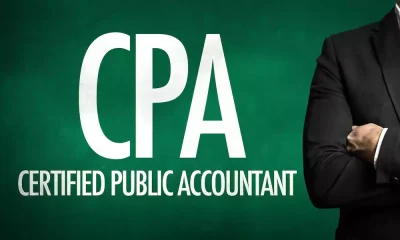Accounting & Finance
Growing Your Business: Tips On Choosing The Right Finance

At some point in their lifecycle, many businesses seek growth. Whether through diversification, market penetration or expansion, a critical factor in your growth plans is getting the proper funds to finance.
Many small business owners start their business by taking out a small business loan or with savings. In fact, 77 per cent of small businesses use savings initially. Striking the right balance in funding your business’ growth can make a significant difference and ultimately determine whether your company succeeds in its plans or sinks under the pressure of debt.
As with any growth plan, you must take the time to have a clear-cut plan for the direction of growth you want.
When choosing finance to suit your expansion plans, you should know how much you will need and why you are seeking this finance. Funding can take either of two kinds: equity financing and debt financing.
The key lies in deciding how much control you would be willing to give up in exchange or how much debt you would be comfortable taking on board. If you are considering the options for funding your business’ growth, here are a few tips on choosing between the two.
Equity Financing
For small businesses, equity financing options are likely through venture capital or angel investors.
Along with giving up a share of your business, securing equity financing can take time.
Keep in mind that investors are also entitled to a share of your profits going forward, and last but not least, they have a say in your business decisions. Your growth plan may be adapted, and the direction changed to keep investors happy. Therefore if you are thinking about equity financing, consider how much control in your business you are willing to give up.
You should be armed with an iron-clad professional business growth plan to secure equity financing and entice investors.
Newer versions of equity financing, like crowdfunding, allow many small investors to invest in your business in exchange for a small part of a specific benefit. These can be great for publicity, with many investors spreading the word about your business.
Finally, another great benefit of equity financing is that the risks are transferred to the investors. This means there is no obligation to repay the invested amount unless you choose to buy them out at some point. Therefore there are no interest charges or repayment schedules. Technology startups are great for equity financing.
Debt Financing
There are many upsides to choosing debt financing for your growth plans. One of the biggest ones is the lack of input from lenders.
Unlike equity financing, lenders in debt financing, such as banks, are concerned with recovering their loans and interest in the agreed time. This gives you complete control of your business and decision-making. This option is often appealing to business owners who prefer to not have a share of their business sold.
Once you have repaid the loan, the relationship ends, and you can operate your business unchallenged.
Debt financing also comes with fixed repayment schedules, which are great for forecasting future cash flows. Other versions of debt financing, such as overdrafts, are suited in emergency situations where speed is paramount. If your growth plans are more immediate and your business is expanding rapidly, overdrafts can be the answer.
Consider financing through credit cards to cover short-term expenses or gaps in your cash flows. They allow access to revolving credit, a great way to build your credit as a young business. However, credit cards also carry moderate to high APR rates, which will increase your repayments once any introductory interest-free period is over.
Of course, taking on debt can mean pledging collateral to secure your loan. Generally, debt financing suits companies past the startup stage, where cash flows are established. In addition to the collateral needed for business loans, lenders will also consider your business and your credit score.
Forty-two per cent of small businesses relied on personal credit scores to secure debt financing in 2016. Any missed or late payments in your past can affect your access to funding and sometimes even drive your cost of financing up. If you are considering debt financing, have a well-thought-out proposal and business plan for your growth ideas to present to your lender. Small businesses can be regarded as risky in their startup stages.
If your expansion plans include property or machinery purchases, you may want to consider leasing. Leasing can give you all the benefits of owning the asset with less costs. There are many options available for funding your growth aspirations. Choosing the right source depends on your goals; each option satisfies different purposes. With diligent research, you can make an informed decision and secure your business’ future.









